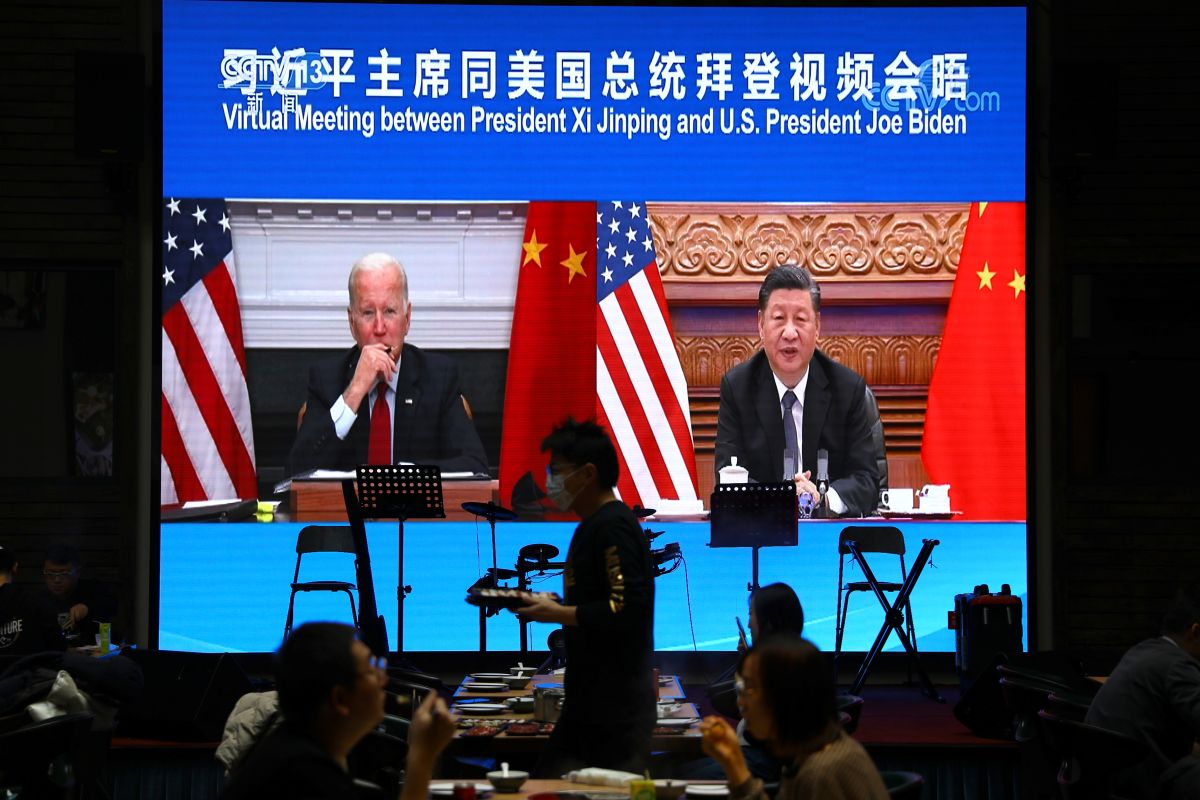The Biden-Xi Meeting - Competition without Confrontation
The first face-to-face talks—in a virtual format—between the U.S. president and the leader of China mainly served to de-escalate tensions in their bilateral relations, particularly in the context of China’s latest military activity over Taiwan. The leaders agreed to launch a dialogue on strategic arms and ease visa restrictions on journalists. Despite the deep differences between the sides, which were re-emphasized in the meeting, for example, on economic issues, the talks signal an easing of the stress in relations between the U.S. and China.
 Photo: TINGSHU WANG/Reuters/Forum
Photo: TINGSHU WANG/Reuters/Forum
What led to the talks?
This was the first meeting, albeit virtual, between the leaders since Biden became president (they had previously spoken twice via telephone). Earlier interactions among high-level officials of both countries, especially a meeting in Alaska in March 2021, confirmed that the Biden administration is engaging in broad competition with China, accepting inevitable tensions that this policy may generate. Events that have exacerbated U.S.-China relations in the last several months include Chinese military actions towards Taiwan, heightened nationalist rhetoric during the 100th anniversary celebrations of the Chinese Communist Party, new measures aimed at closing off China to foreigners due to COVID-19, and China’s revealing new investments in the development of strategic defence systems (nuclear). Subsequent U.S. sanctions aimed at Chinese tech companies in June 2021 and the establishment of the AUKUS partnership also have affected Chinese interests.
What was the U.S. policy presented by Biden?
Throughout the meeting, the U.S. president signalled his willingness to de-escalate tensions with China by, among other things, reaffirming support for the U.S. “One China” policy. Nevertheless, Biden raised freedom of navigation in the Taiwan Strait and South China Sea and announced his administration’s readiness to maintain stability in the Indo-Pacific region. The president hopes to pursue an open dialogue with Chinese officials as a means of managing the risks of deeper conflict and avoiding a further escalation of tensions. For this purpose, the question of strategic arms will be included in the bilateral dialogue. Although this is a modest step, it may clear the way for a future mutual understanding in this regard. Notwithstanding China’s unwillingness to cooperate in finding the cause of the COVID-19 pandemic, Biden expressed a desire to work together toward preventing future epidemics. At the same time, he maintained his criticism of China for violating human rights in Hong Kong and repression of Uyghurs. Despite the Chinese expectations, the president did not repeal tariffs on products from China imposed by the Trump administration.
What goals did Xi Jinping present for China?
The Chinese side pursued the high-level meeting with the Biden administration. Xi’s main goal was to de-escalate the tensions as a means of stalling U.S. security cooperation and its pursuit of economically restrictive policy toward China among the countries in Asia and the Pacific. For this reason, Xi referred to his longstanding “friendship” with Biden while declaring plans to lower visa limitations for American journalists and to begin talks on launching a dialogue for nuclear stability. In addition, the meeting served to confirm the effectiveness of China’s policy towards Taiwan with the U.S. signalling its support of the “One China” policy. For this reason, the Chinese side emphasised Biden’s disagreement with “independence ambitions” in Taiwan in the statement published after the talks. The U.S. communique, however, condemns any changes to the status quo in the Taiwan Strait.
If the meeting leads to eventual improvements in U.S.-China relations, how will it affect EU policy?
Limited de-escalation of the tensions between the U.S. and China is beneficial for the EU, for example, in the context of increasing trade stability along crucial sea lanes between Europe and Asia. However, the lack of compromise over the security of Taiwan or on the question of tech competition, as well as threats towards the EU emanating from economic interdependence with China and China-Russia cooperation, increase the need for closer transatlantic ties. Talks concerning cooperation in the area of new technologies or the issue of changes in supply chains per the Council on Trade and Technology are convenient tools. Referring to Lithuania’s recent experience, the EU should also intensify cooperation with Taiwan, for example, on access to semiconductors.



